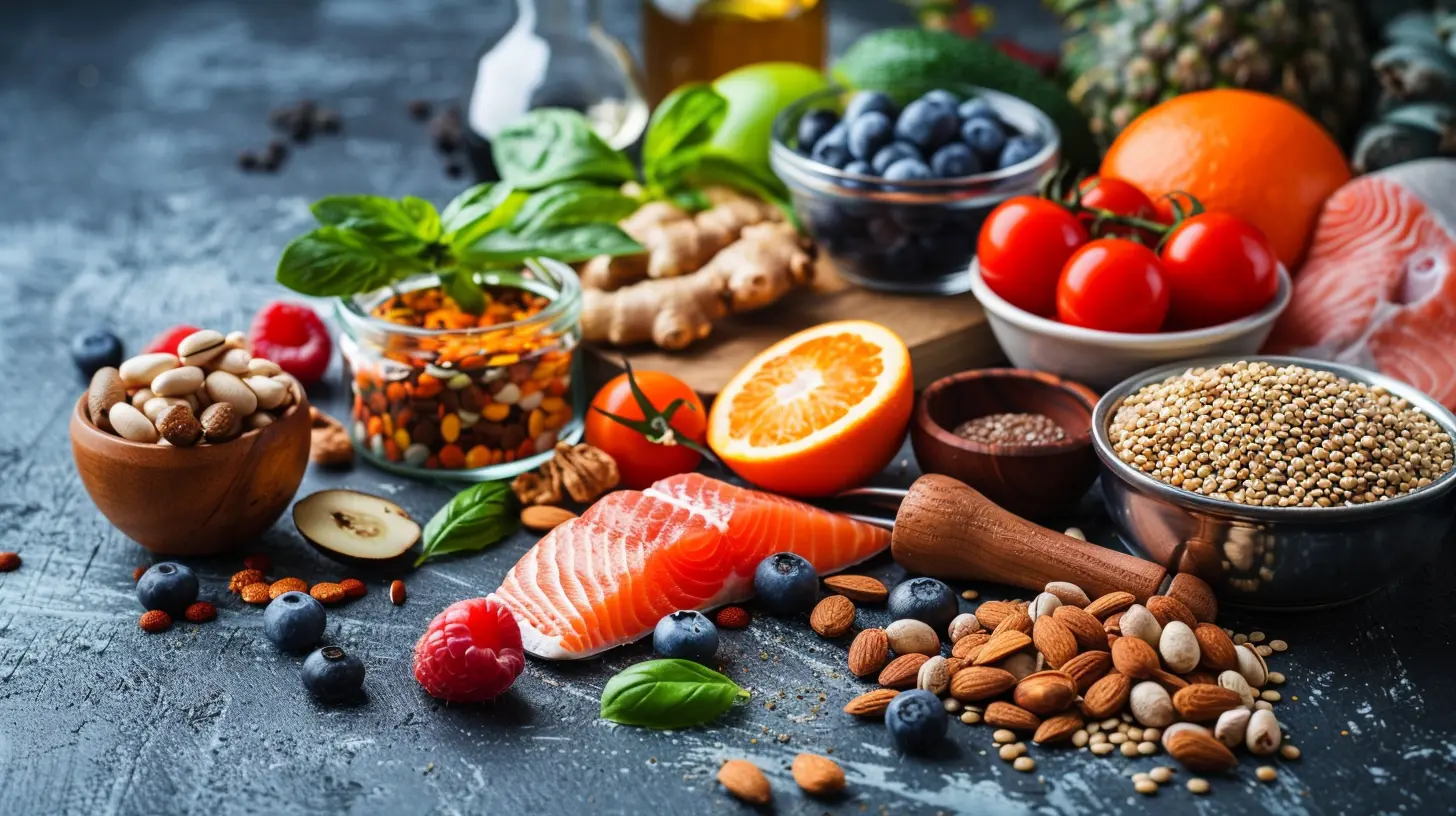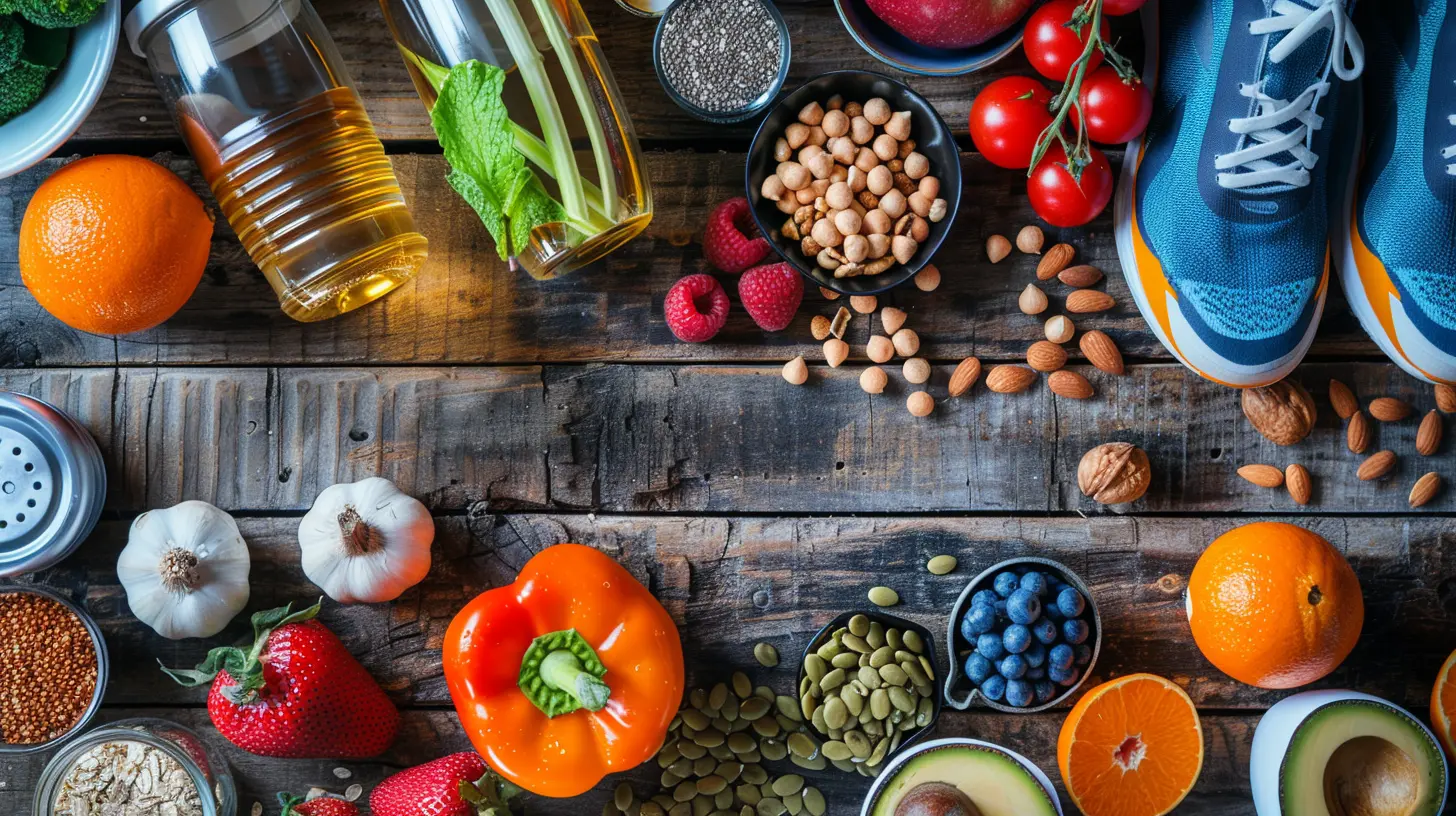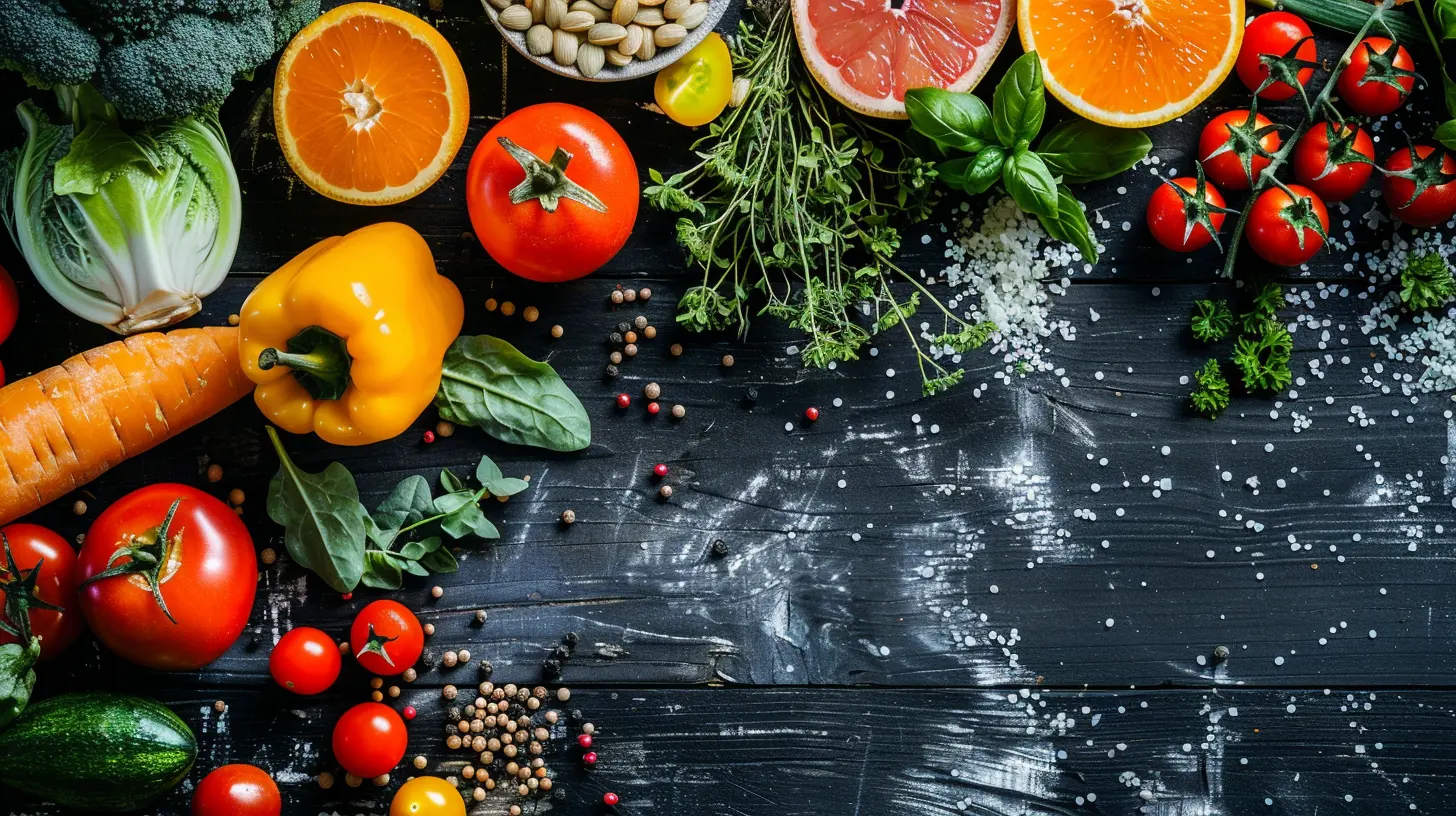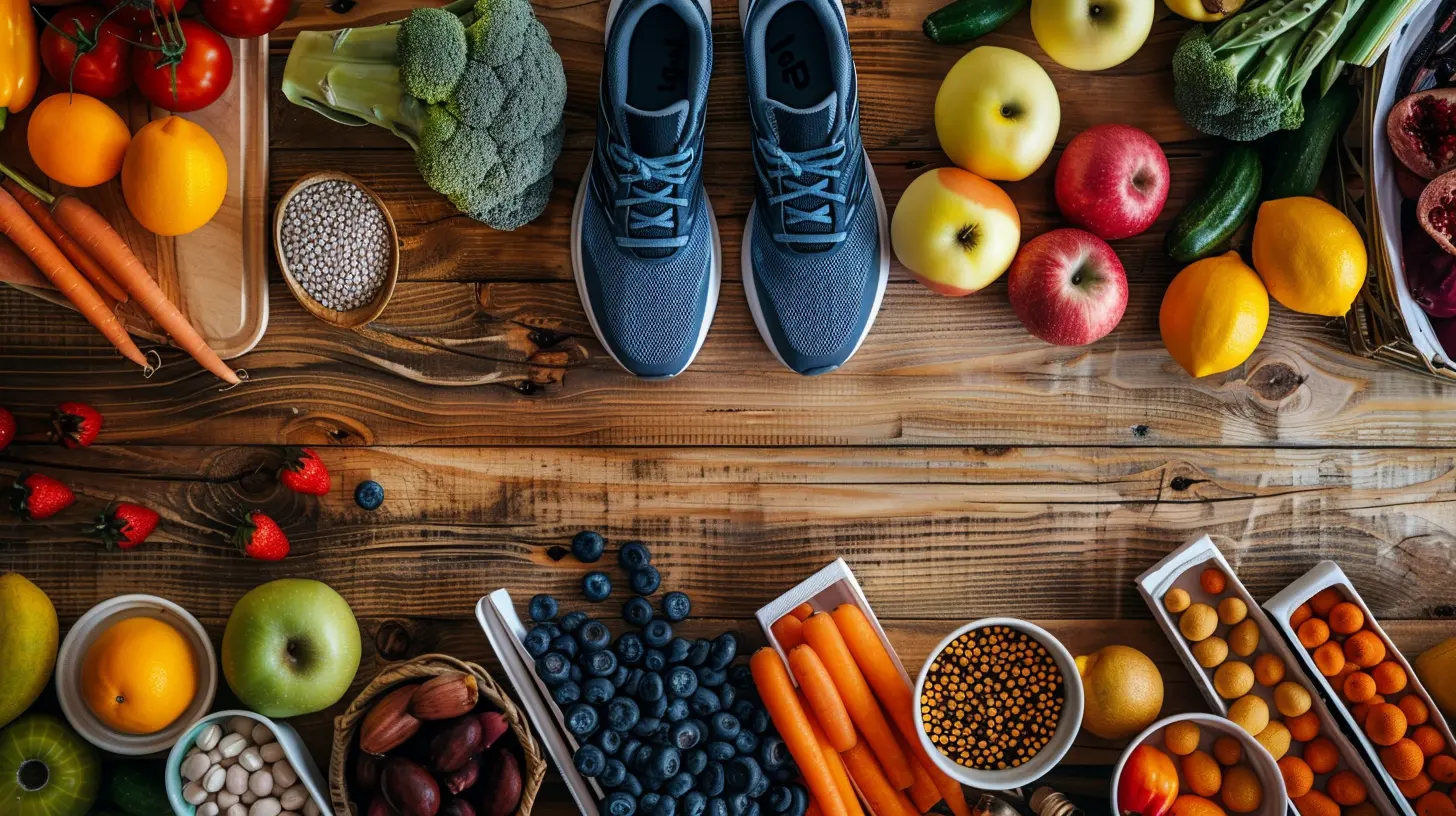Nutrition Tips for Faster Recovery and Injury Prevention
21 June 2025
Staying active and pushing your limits is a part of every athlete's journey. But let’s be honest—whether you're a weekend warrior or a seasoned pro, injuries and slow recovery can throw a wrench in your progress. The good news? Proper nutrition can be your secret weapon for bouncing back faster and staying in the game longer.
Think of your body as a high-performance engine. You wouldn’t fuel a race car with low-grade gas, right? The same goes for your body. What you eat plays a massive role in how well you recover, heal, and even prevent injuries in the first place. So, let’s break down some game-changing nutrition tips to keep you at your best.

1. Prioritize Protein for Muscle Repair
Muscles take a beating during intense workouts, and protein is their best friend when it comes to repair and growth. Every micro-tear in your muscle fibers needs amino acids (the building blocks of protein) to rebuild stronger.Best Protein Sources for Recovery:
- Lean Meats – Chicken, turkey, and lean beef are packed with high-quality protein and essential nutrients.- Eggs – One of nature’s best recovery foods, eggs are loaded with protein and essential amino acids.
- Fish – Salmon and tuna bring protein to the table along with anti-inflammatory omega-3s.
- Plant-Based Protein – Lentils, chickpeas, quinoa, and tofu are solid choices for vegetarian and vegan athletes.
- Greek Yogurt – A double whammy of protein and probiotics to aid digestion and absorption.
🔹 Pro Tip: Aim for at least 0.6–0.9 grams of protein per pound of body weight per day. And don’t forget to get some protein within 30–60 minutes post-workout to maximize muscle repair!

2. Carbs Aren’t the Enemy – They’re Your Recovery Partner
Carbohydrates often get a bad rap, but they’re essential for replenishing glycogen stores (your body’s fuel reserves). Skipping out on carbs after a tough session can leave you sluggish and prolong recovery.Best Carb Sources for Recovery:
- Whole Grains – Oats, brown rice, quinoa, and whole wheat bread provide sustained energy.- Fruits – Berries, bananas, and oranges offer natural sugars, vitamins, and antioxidants.
- Starchy Veggies – Sweet potatoes, carrots, and beets are nutrient-dense carb options.
- Legumes – Beans, lentils, and chickpeas add fiber and plant-based protein to the mix.
🔹 Pro Tip: Balance is key. Pairing protein with complex carbs post-workout aids muscle recovery and replenishes lost energy.

3. Hydration – Your Body’s Recovery MVP
Even mild dehydration can delay recovery and increase the risk of injuries. Water helps transport nutrients to your muscles, flush out toxins, and maintain joint lubrication.Hydration Tips:
- Drink consistently throughout the day—don’t wait until you're thirsty!- Electrolytes matter—replenish sodium, potassium, and magnesium lost in sweat.
- Coconut water or electrolyte drinks are great post-workout hydration boosters.
- Eat hydrating foods—watermelon, cucumbers, and oranges help maintain fluid balance.
🔹 Pro Tip: A simple hydration check—if your urine is pale yellow, you're good; if it’s dark, drink up!

4. Fight Inflammation with Healthy Fats
Inflammation is your body’s natural response to injury, but chronic inflammation can slow recovery and increase injury risk. Healthy fats help control inflammation and speed up healing.Best Anti-Inflammatory Fat Sources:
- Avocados – Loaded with heart-healthy monounsaturated fats and fiber.- Nuts and Seeds – Almonds, walnuts, chia seeds, and flaxseeds pack a punch of omega-3s.
- Fatty Fish – Salmon, sardines, and mackerel are rich in omega-3s, known for their recovery benefits.
- Olive Oil – A staple in the Mediterranean diet, olive oil fights inflammation like a champ.
🔹 Pro Tip: Swap out processed, fried foods for these healthy fats to keep your body in peak condition.
5. Load Up on Vitamins and Minerals for Healing
Micronutrients are like the behind-the-scenes crew of a blockbuster movie—you might not see them, but they make everything run smoothly. Deficiencies can delay recovery and increase injury risk.Key Nutrients for Recovery and Injury Prevention:
- Vitamin C – Crucial for collagen production and immune function. (Citrus fruits, bell peppers, strawberries)- Vitamin D – Supports bone health and muscle function. (Sunlight, fortified dairy, egg yolks)
- Calcium – Essential for strong bones and muscle contractions. (Dairy, leafy greens, almonds)
- Magnesium – Helps relax muscles and prevent cramps. (Nuts, seeds, spinach, dark chocolate)
- Zinc – Aids in wound healing and boosts immunity. (Pumpkin seeds, chickpeas, meat)
🔹 Pro Tip: A well-balanced diet should provide all these micronutrients, but if you're lacking, consider whole-food-based supplements.
6. Pay Attention to Collagen and Bone Health
If you’re dealing with joint pain or recovering from fractures, giving your bones and connective tissues some extra love is a smart move.Best Foods for Joint and Bone Health:
- Bone Broth – Packed with collagen and amino acids to support cartilage repair.- Leafy Greens – Kale, spinach, and collard greens supply calcium and vitamin K.
- Citrus Fruits – The vitamin C in oranges, lemons, and kiwis helps collagen formation.
- Fatty Fish – A double dose of omega-3s and vitamin D for strong bones.
🔹 Pro Tip: Adding a collagen supplement to your routine can do wonders for joint and tendon recovery.
7. Don’t Forget Antioxidants for Cellular Repair
Training and injuries create oxidative stress, which can slow down recovery. Antioxidants neutralize free radicals and accelerate healing.Best Antioxidant-Rich Foods:
- Berries – Blueberries, raspberries, and blackberries are antioxidant powerhouses.- Dark Chocolate – A little treat with big benefits for inflammation control.
- Leafy Greens – Spinach and kale support detoxification and recovery.
- Green Tea – Packed with polyphenols that reduce inflammation.
🔹 Pro Tip: Eating a colorful variety of fruits and veggies ensures you get a diverse range of antioxidants.
8. Get Enough Rest – Nutrition Isn’t Everything
You can fuel your body like a champion, but if you’re not getting enough sleep and rest, recovery will suffer. Sleep is when your body goes into repair mode, regenerating tissues and replenishing energy stores.- Aim for 7-9 hours of sleep per night.
- Avoid eating heavy meals right before bed to improve sleep quality.
- Magnesium-rich foods (like almonds or bananas) can help relax muscles before bedtime.
🔹 Pro Tip: Prioritize a consistent sleep schedule—your body thrives on routine.
Final Thoughts
Recovery and injury prevention aren’t just about what you do in the gym or on the field. The food you eat plays a massive role in how quickly you bounce back and how resilient your body remains over time. By prioritizing protein, staying hydrated, fueling up with healthy carbs and fats, and loading up on key vitamins and minerals, you set yourself up for long-term success.So, the next time you hit the gym or step onto the field, remember—nutrition is just as important as training. Eat right, recover faster, and stay injury-free!
all images in this post were generated using AI tools
Category:
Injury PreventionAuthor:

Umberto Flores
Discussion
rate this article
3 comments
Elara Willis
Great tips! Proper nutrition really makes a difference in recovery and keeping injuries at bay. Thanks for sharing!
June 23, 2025 at 4:12 AM

Umberto Flores
Thank you for your kind words! I'm glad you found the tips helpful for recovery and injury prevention.
Dash McAllister
Nutrition for recovery? Who knew my secret weapon was avocado toast and chocolate milk! I’m just waiting for someone to say pizza counts as a food group for injury prevention. Until then, I'll keep fueling my couch marathons with kale chips and optimism!" 🍕💪
June 22, 2025 at 11:40 AM

Umberto Flores
Great perspective! While avocado toast and chocolate milk are excellent choices for recovery, remember that balance is key. Keep enjoying those couch marathons, but a variety of nutrients will support your journey even more! 🌟
Zethryn McElveen
Great tips! Fueling our bodies right means more wins on the field. Let’s recover stronger and play harder!
June 21, 2025 at 4:03 AM

Umberto Flores
Thank you! Absolutely, proper nutrition is key to maximizing performance and recovery. Let’s keep pushing for those wins!



